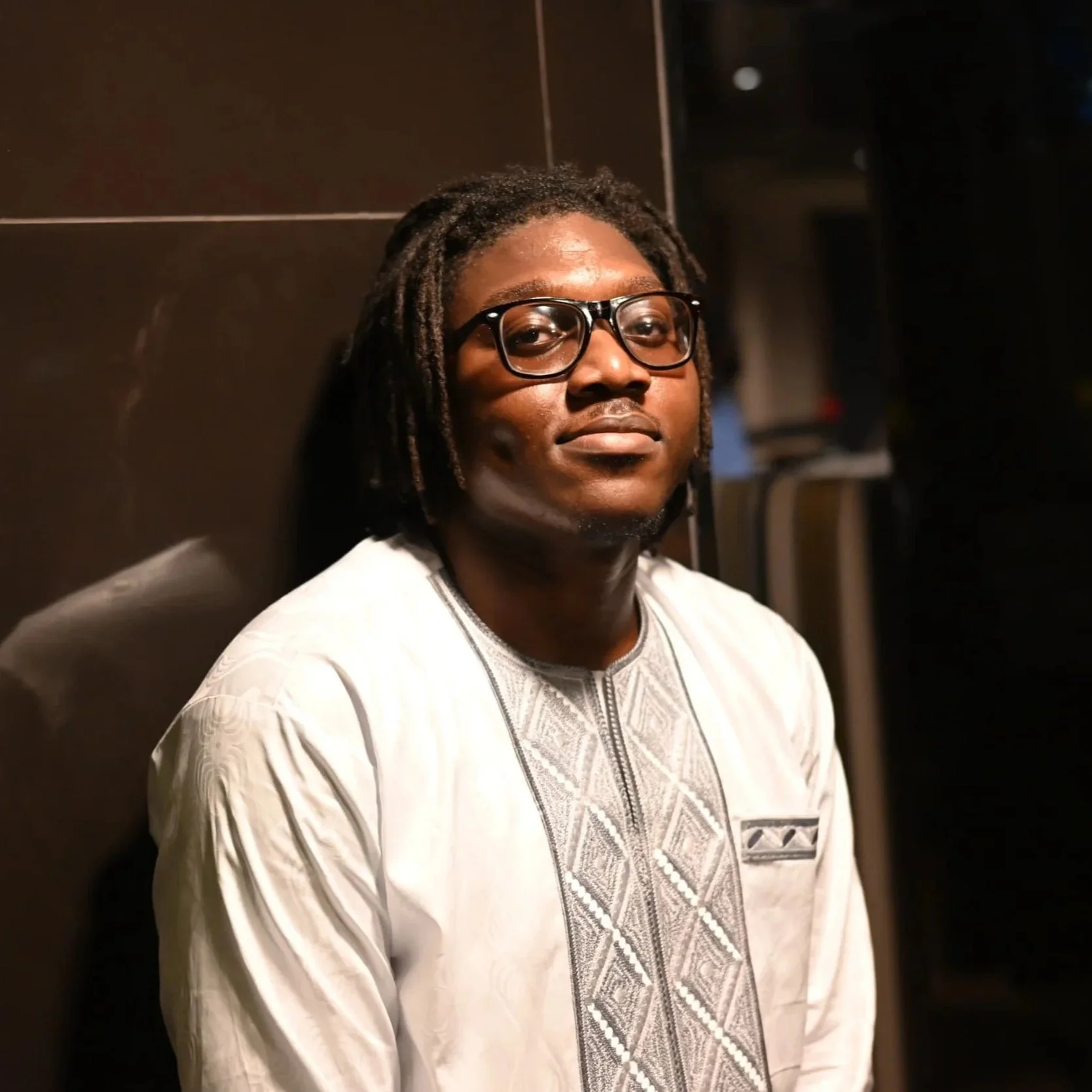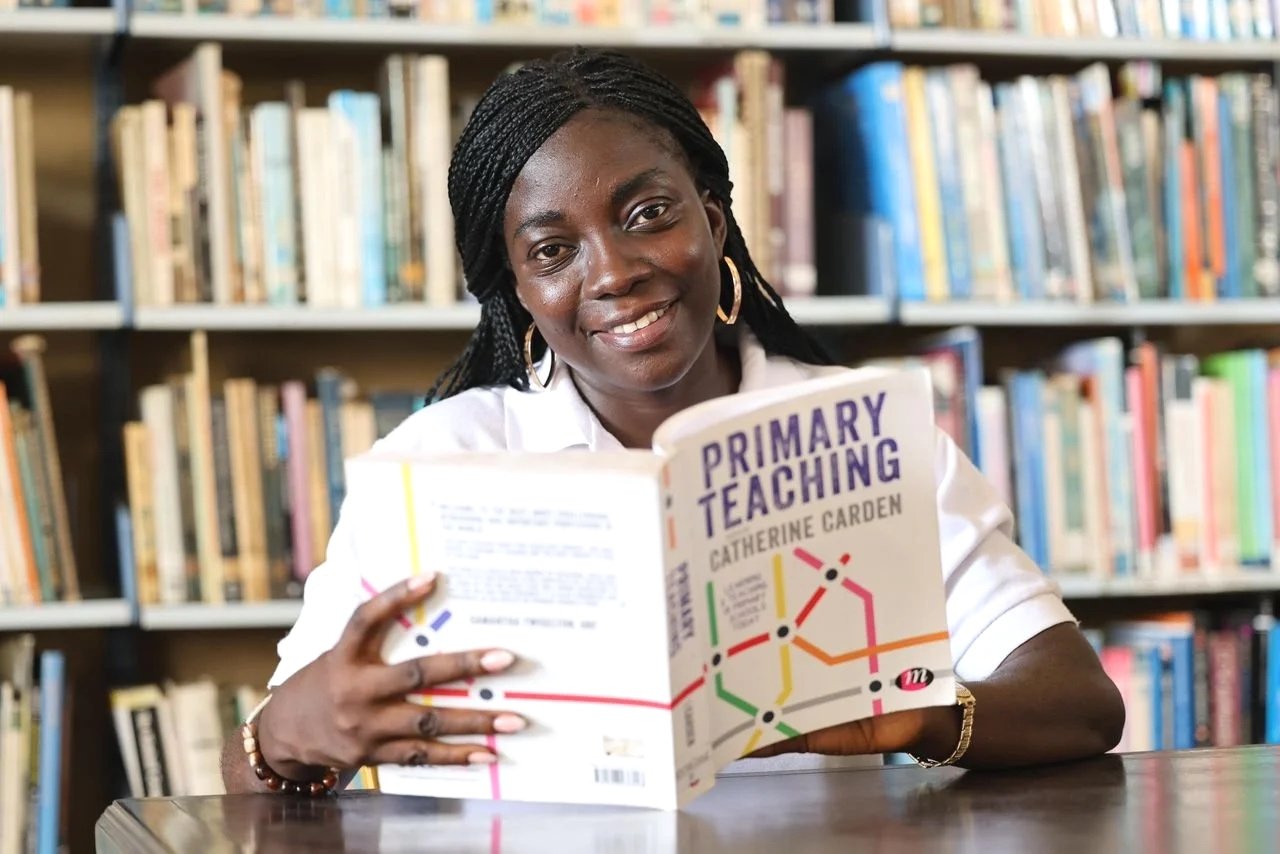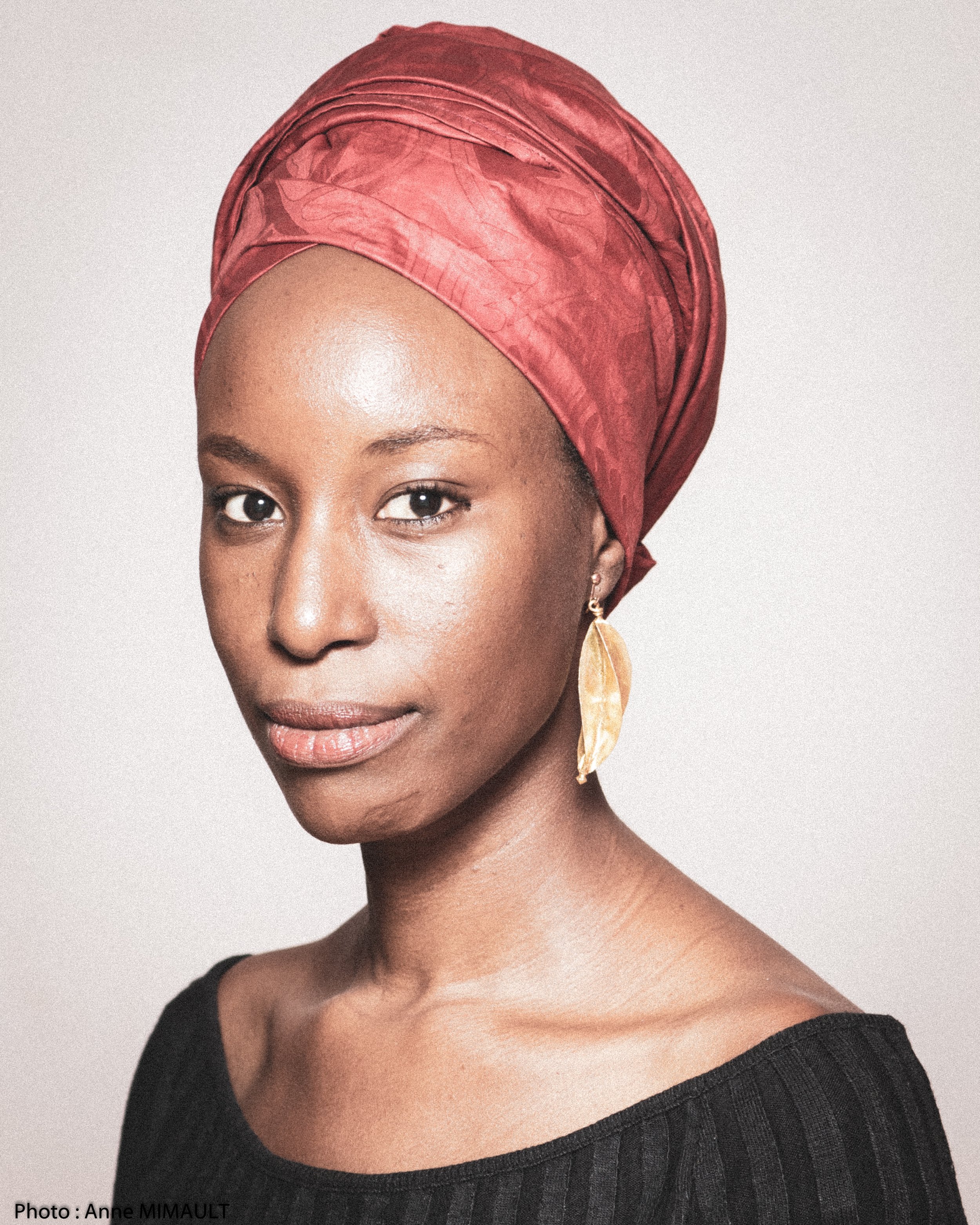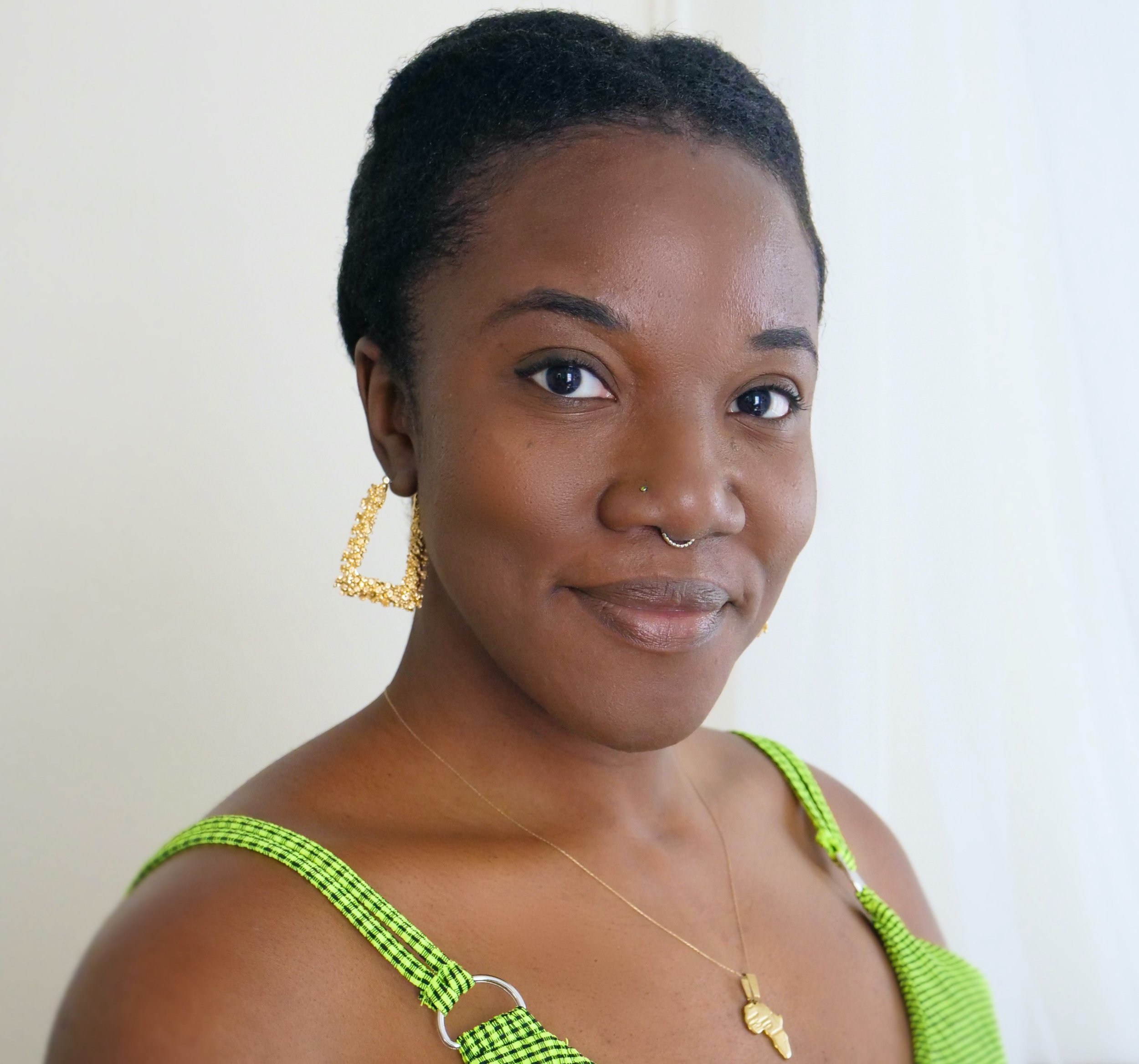Akindele Decker on Sierra Leonean History and Patriotism
Sierra Leoneans have contributed in rich and diverse ways to global history and culture, from flying fighter jets in World War II, to building global fashion brands. Sierra Leonean-Americans Akindele Decker and Adrian Labor are on a quest to document these contributions and make them accessible to everyone. They have co-authored a book “20 Icons of Sierra Leone Who Shaped History”, along with the children’s version, to highlight the historic connections and contributions of Sierra Leoneans in world history and culture. Poda-Poda Stories interviewed Akindele Decker, a poet and writer, to talk about his writing journey, and the new book.
Poda-Poda Stories: Thank you Akindele Decker, for joining us in the Poda-Poda today. Tell us a bit about yourself, your background as a writer and a Creative.
AD: I really appreciate the opportunity. I am a big fan of Poda-Poda Stories. I think it's a very revolutionary venture and it’s needed. So, about myself. I was born in Freetown. I am Krio with Fula, Themne and Yoruba ancestry. I attended the Sierra Leone Grammar School, and I was there for about two years, before relocating to the US. Growing up, I was inspired to write because I had a book of folk tales by my grandfather, called Tales of the Forest where I learned about characters, like Bra Rabbit and Bra Spider, before I started watching Disney. So, I was more in tune with characters that I could relate with from my own country. I started writing poetry around ninth grade and by 12th grade I had about 300 poems. A lot of my poems are inspired by my heritage and living as an African immigrant in America. I think the only way I've been able to express that is through storytelling, poetry, and short stories whenever I can.
Poda-Poda: Tell us about your book Sierra Leone Icons. How did this project come about and why is it being published now?
AD: My co-author, Adrian Labor and I were doing genealogical research on our families and Adrian found a lot of fascinating things about his family history. He was able to trace his family roots from West Africa to Virginia and back to Freetown through the middle passage. The more we talked about our family history, the more we realized that it was almost impossible to talk about it without talking about Sierra Leone history, and the many connections between Sierra Leone and the black diaspora. Initially we both had a strong eagerness to develop these family histories into something we can pass down to our children and their children.
But the moment we came across the history and information about Sierra Leone, we were stunned that a lot of it was not mainstream, especially in terms of access to the younger generation. So, we came up with the project to highlight icons of Sierra Leone. Each of these icons would be a gateway for young Sierra Leoneans to then go deeper into Sierra Leone history.
Poda-Poda: How long did this project take?
AD : It took a very long year ( laughs) . I travelled to Sierra Leone in 2019 and since my return in February 2020, until December 2020 , we worked on this project. It took a lot of research. Adrian is a civil engineer, and I am a creative professional. We were spending so much time on this, but we couldn’t stop. The more we researched, the more we found out about Sierra Leoneans in World War II for example, and we wanted to document these things. We looked everywhere we could. We looked at primary sources and old newspapers and academic books. We did research everywhere. We culled academic journals and documented as much as we could. One of the challenges with that specifically was that we are not scholars or academics and a lot of written history about Sierra Leone has been done by academics who spend years on this topic. We were just two ordinary guys that had a passion and we wanted to write something about our history and make it available. So, there was definitely a lot of challenges getting the information, and also processing the information as well into something that people could read easily. We had to make sure that we were being as accurate as possible and being able to purge out the colonial stuff, as well as incorrect spelling of names, places, and incorrect accounts of events. It was a very interesting process.
Poda-Poda: What do you hope that publishing this book will achieve?
AD: Good question. I think for one, we want students in schools to have access to this book, and for the books to be available in libraries and places where students can access them in Sierra Leone.
We want young people to develop awareness of Sierra Leone’s contribution to world history as well. I think what a lot of these stories tell us is that about every point of history, Sierra Leoneans have been there. We've been active, we've been a participant, a contributor to history, and not just as byproducts of it.
So I want young people in Freetown, Moyamba, Rotifunk ,Kono, everywhere, to become aware and conscious that their community actually is active in this world. I think that could help their empowerment and development. We also need more children’s books about Sierra Leonean history so our children will know these heroes.
For me, I want to see more young Sierra Leoneans be inspired to tell our stories. Like I said, Adrian and I are not scholars. We are just two ordinary guys who had stories to tell and we took a leap. But there was a fear for me, especially as a writer, on how Sierra Leoneans would receive it. However, we took the leap. We didn't go with a traditional publisher. We chose to self-publish the book, so there was, there was definitely a lot of challenges there as well.
Poda-Poda Stories: What can we learn from these icons highlighted in your book about what it means to be patriotic?
AD: The first thing is to take a leap in doing what you feel is right for your country. No matter where you are, what discipline you're working in or what challenges you're facing, take a leap.
Learn from Adelaide Casely-Hayford, for example, she wanted to see a vocational and technical school available for girls. She did it, even with limited financial support at the time, she took a leap.
There’s also Harry Washington who was an ex- enslaved person of George Washington. He was part of the American revolution. He fled the plantation, fought in the war for the British, because they promised him his freedom if he did so. He eventually settled with the other settlers in an established Freetown in 1792. The British then who had told the settlers that they were going to come to Freetown and govern themselves, decided instead to govern them. Eventually in 1800, Harry Washington and a few others revolted against the British. I always say that that was maybe the first effort towards independence early on, because the settlers wrote their own constitution.
Also, learn from someone like Dr. Arthur Abraham who wanted to portray a clear, authentic representation of Sierra Leone history. He advocated for that all the way, till when he passed.
Let us just start with just that little step of doing what we know is right for Sierra Leone and doing our best at it.
Get the book and the children’s version on amazon !
Author bios:
Adrian Q. Labor extended his interest for everything Sierra Leonean by taking up two new hobbies over time alongside his current profession as a Civil Engineer. His first hobby focused on building an online genealogy of the founding settlers of the city of Freetown. He then followed up with a second one to conduct literature research on the Icons of Sierra Leone who shaped the country's diverse national and rich international history. Through the insights gained, he was drawn to the opportunity to create this illustrated history book series. This first book, “20 Icons of Sierra Leone Who Shaped History”, which he co-authors, remakes historic connections and highlights contributions of national ancestors of all young adults of Sierra Leonean parentage.
Akindele Decker is a poet and writer born in Sierra Leone. His first breakthrough in poetry was at the age of 15, with his first published Poem, ‘What If’ in 1998. His poems cover topics dealing with the middle-passage, identity, and African history. In 2004, Akindele received an Editors Choice Award for outstanding achievement in Poetry from the International Library of Poetry. In 2012, he performed “Dancing in Blue Waters” at Busboy & Poets in Washington D.C., chronicling the middle passage of the Trans-Atlantic Slave trade. One of his most recent work was in 2016 with GWB Commission’s ONE Campaign, celebrating the diverse ancestral heritage of Sierra Leoneans.









